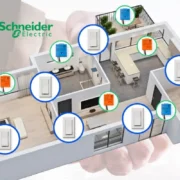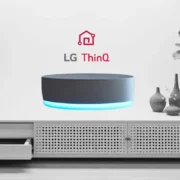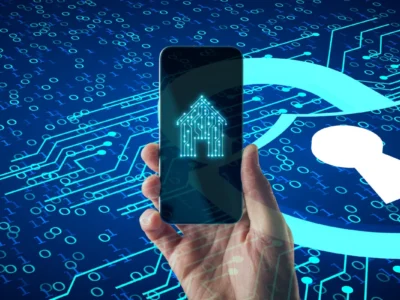A smart lock is an electro-mechanical locking mechanism system that locks and unlocks doors in response to commands from an authorised source. These directives are frequently transmitted by Wi-Fi or Bluetooth by smartphones, wearable technology, and tablets. Smart locks can be programmed to limit public access and are monitored remotely. In addition, they include monitoring services such as video cameras with recording capabilities to display who is at the door and mobile application notifications.
Two of the most important factors fueling the global market are the proliferation of smart devices and the growing demand for sophisticated home security systems. Due to the rise in security threat occurrences and the expansion of smart cities, smart locks have become vital in both the residential and commercial sectors. Smart locks provide users with a greater sense of security, outstanding durability, and low installation costs. Therefore, they are rapidly replacing antiquated locking mechanisms with keys that are more susceptible to theft and loss. Moreover, as a result of expanding urbanisation, disposable income, and the rapid spread of IoT technology to make life more convenient, people are more likely to employ intelligent technology-based support, such as home security solutions, for everyday functions other than protection.
People have begun employing a variety of cutting-edge home security systems available on the market due to their growing desire to add more convenience and comfort to their lives through the use of modern technologies. However, it is expected that the deployment of innovative technologies, such as cloud-based locking and unlocking, which enables the user to remotely access these locks via a virtual device, will drive market growth.
Recent Development: Adoption of innovative technologies
An important emerging trend in the smart door lock market is the growing acceptance and usage of advanced connected technologies in people’s daily lives. Tech titans are integrating technologies to create clever lock security solutions for homes and businesses. An Indian corporate conglomerate exemplified one of the finest examples of technical advancement by releasing a smart lock equipped with an enhanced form of Bluetooth technology, a 360-degree fingerprint reader, and a cloud-based mobile application. In addition, privacy mode, spy mode, and power bank charging are notable characteristics that distinguish the product in the marketplace.
Global market perception
The global market for smart door locks was valued at USD 1,172.5 million in 2019 and is projected to reach USD 4,449.2 million by 2027, expanding at a CAGR of 18.4% over the forecast period.
Innovative and enhanced core technologies, such as Artificial Intelligence, the Internet of Things (IoT), big data, cloud-based applications, and others, fuel the expansion of the smart lock security solution market. These technologies have assisted industry participants in designing and supplying modern smart door locks with a variety of functions.
The movement in consumer behaviour precipitated by the global shift in technology use and consumption has functioned as a driver for the expansion of the smart door sector.
According to the European Investment Bank, the global investment in smart cities was approximately USD 124 billion, based on 100 major cities in countries such as the United Kingdom, the United States, India, Japan, China, Saudi Arabia, and others.
Indian market
Although the market penetration of home automation in India is lower than in other countries, it nevertheless possesses enormous future potential. In addition, the rise of cost-effective video surveillance linked with real-time analytics for security solutions and the development of smart kitchen appliances have improved IoT for residential applications.
The value of the India home automation market was $1,790.9 million in 2018, and it is projected to reach $13,574.1 million by 2026, expanding at a CAGR of 29.8% during the period 2019-2026. Consequently, overall income is anticipated to increase 8.2% from 2021 to 2029.
Under Government of India initiatives such as ‘Make in India’ and ‘Digital India,’ numerous significant firms are creating technologies and products to meet the needs of the Indian smart home.












Comments